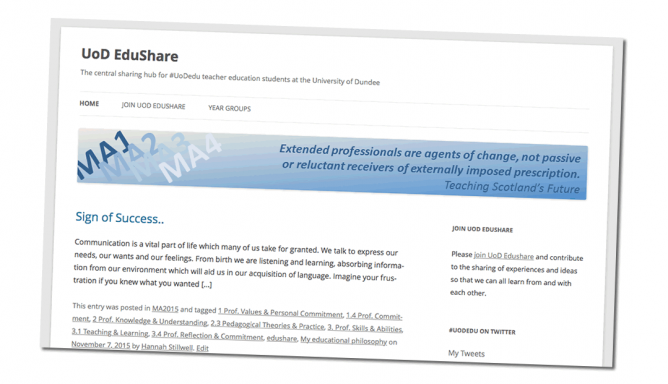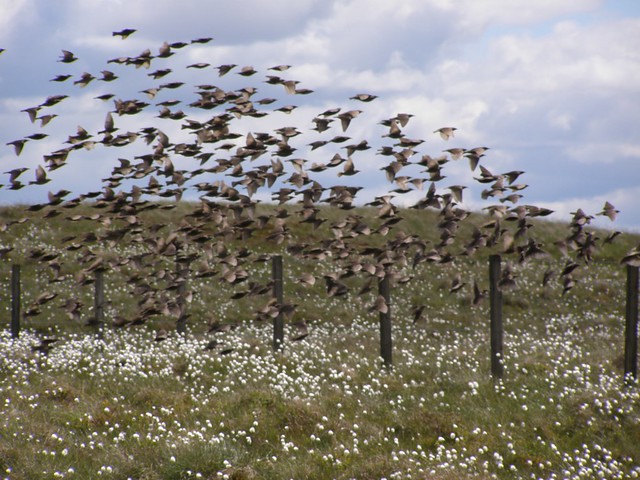I am finding micro.blog a really interesting community.
From an educational POV the most positive experience and the one that I would like to see replicated (in Glow and elsewhere) is #DS106.
DS106 influences the way I think about ScotEduBlogs and the way I built two Glow Blogging Bootcamps 1.
In particular these sites aggregate participants content but encourage any comments and feedback to go on the originators site.
Micro.blog is making me rethink this a little, there you can comment on micro.blog (the same as the blog hub in DS106) and that comment gets sent as a webmention to the originators site. This makes thinks a lot easier to carry through.
Micro.blog also provides the equivalent of the #ds106 twitter hashtag but keeps that in the same space as the hub/rss reader.
Manton recently wrote:
Micro.blog will never be that big. What we need instead of another huge social network is a bunch of smaller platforms that are built on blogs and the open web.
from: Manton Reece – Replacing 1 billion-user platforms
Which made me think.
Firstly it reinforces how Manton really thinks hard about making micro.blog a brilliant place, avoiding the pitfalls of huge silos.
Secondly it speaks to idea of multiple social networks. Imagine if DS106 and ScotEdublogs where both platforms in this sense, I could join in either or both along with others using my blog to publish. I could decide which posts of mine to send to which community, and so on.
It is the same idea I’ve had for Glow blogs since I started working with them 2.
Class blogs could join in and participate in different projects.
It would be easy to start a local or national project and pull together content and conversation from across the web into one learning space. Although I’ve spoken and blogged a lot about this idea I don’t think I’ve made it stick in the minds of many Scottish educators. I wish I could.
- Blogging Bootcamp spring 2015 & Blogging Bootcamp #2 Autumn 2015 ↩. I believe the potential for these sorts of educational activity is much underused in primary and secondary education. I wish I was in the position to organise and design more of these…
- For example:


